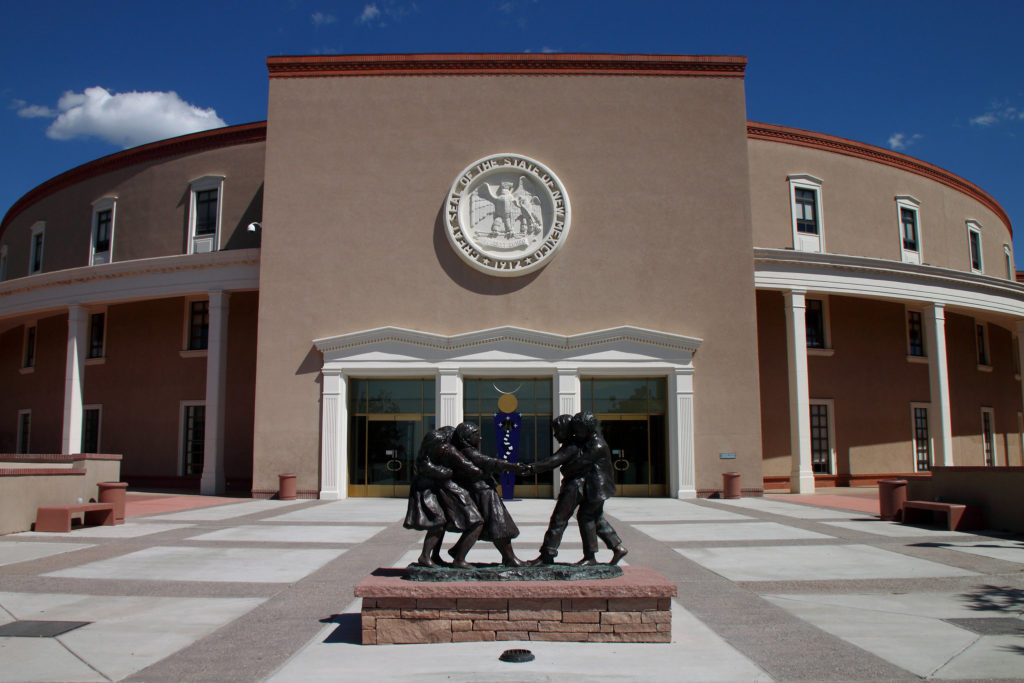The aftermath of New Mexico’s 2021 legislative session brought to mind the old adage of, “you win some and lose some.” Victories were won that communities and advocates have taken decades to achieve, as was the case with Senate Bill 8. Tools on industry accountability were strengthened, and a commitment to plan for a clean energy economy was made.
Yet, despite progress, the difficulty with which these common-sense, obviously necessary pieces of legislation were passed underscores the need for even bigger, bolder, braver victories to successfully protect the state’s frontline communities and climate from the many negative impacts of the oil and gas industry.

The Wins
The introduction and advancement of dozens of wide-ranging environmental bills itself reflected a shift underway in New Mexico, with a growing number of legislators willing to openly advocate for climate and conservation solutions.
Now headed to the Governor’s desk for signature so they can become law, key wins included:
* Senate Bill 8, which will allow state and local officials to adopt protections from air pollution and hazardous waste that are more stringent than federal ones.
* House Bill 76, which allows the Environment Department (NMED) to deny air permits to “bad actors” with a track record of committing felonies, providing false information, and other misdeeds.
* House Bill 51, which enhances public transparency and participation with a database on the location of energy projects, hazardous waste sites, critical wildlife habitat, parks, and other environmental information.
* Senate Bill 112, which establishes a Sustainable Economy Task Force to create and implement a strategic plan for diversifying New Mexico’s economy through clean energy, outdoor recreation, and a range of new industries.
The Losses
Yet even with these and other environmental victories, the entrenched political influence of oil and gas operators was still on full display in cozy meetings and during legislative debates.
Lobbyists and industry proponents maintained a steady drumbeat of unsubstantiated claims that any change to the status quo would drive business away, cripple schools, and crush local communities.
Yet even with these and other environmental victories, the entrenched political influence of oil and gas operators was still on full display in cozy meetings and during legislative debates.
This narrative contributed to the defeat of some important and forward-looking bills, such as those to allow individuals and public agencies to take legal action against violators of state environmental laws; protect freshwater and health from oil and gas waste pollution; and place a moratorium on new oil and gas permits while environmental impacts are studied.
A comprehensive climate bill also failed to advance, despite being championed by many progressive organizations and legislative leadership. The bill contained measures to support communities most impacted by climate change, as well as steps needed to meet state goals to reduce climate pollution.
Bigger, Bolder Victories Ahead?
According to New Mexico’s 2020 climate change report, oil and gas industry greenhouse gas releases more than tripled from 2005-2018 and now make up over half of all emissions statewide. Recent field measurements by NMED and the US Environmental Protection Agency show that oil and gas operators are leaking pollution at double the rate than previously observed.
No legislation passed this session will directly and immediately fix these problems. So Governor Lujan Grisham and state regulators have a lot more work to do.
For instance, the state’s draft rules to rein in oil and gas pollution currently exempt most of the wells in the state on the false assumption that they don’t pollute much. The Governor and her Environment Department have to do much better as they revise the rules.
The Governor should also reconsider her request for a waiver from the Biden Administration’s pause on new oil and gas leasing on federal lands. Climate leadership demands vision. Leadership is not caving into industry pressure when science has given us less than a decade to cut climate pollution in half.
In a state that derives 15-25% of its revenue from oil and gas activities, it will take more time to fully loosen the political grip of the industry and shift to a cleaner, more diverse, and just economy. But the problem with further delay is that the planetary clock is ticking very fast. New Mexico’s legislature managed to take a few critical steps forward, but many more are needed–and it’s high time to start sprinting.


